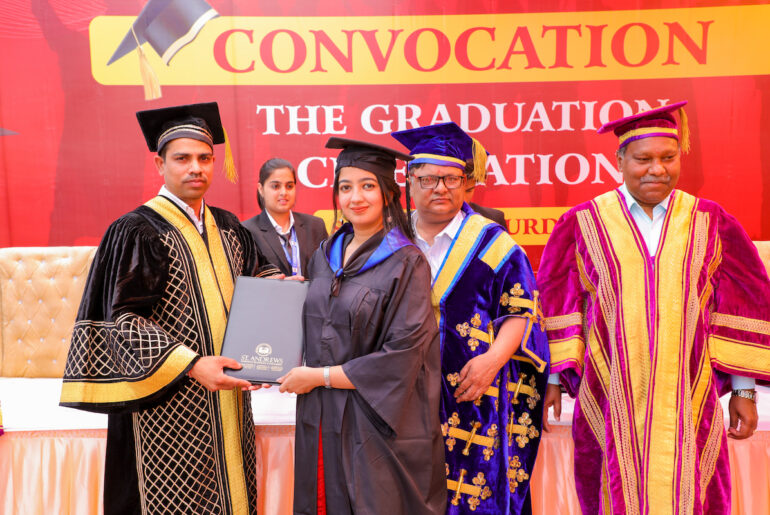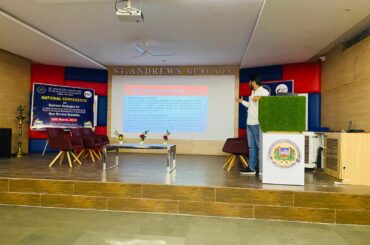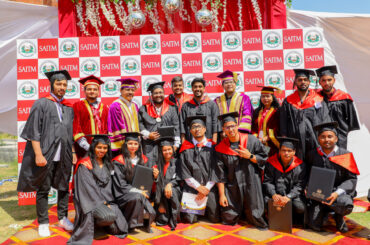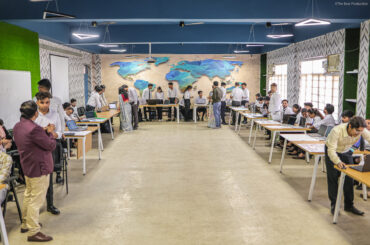B Tech IT
B Tech IT is an undergraduate engineering program that focuses on the study, dcoesign, development, implementation, and management of information systems and technologies. It integrates principles of computer science, Application development, and information management to meet the technological needs of businesses and organizations.
B Tech IT is a four-year undergraduate program that blends theoretical knowledge with practical skills in areas such as programming, data management, networking, cybersecurity, and Application engineering. It aims to equip students with the technical proficiency and problem-solving abilities required to address complex IT challenges in various domains.
B.Tech IT Curriculum Overview
The course curriculum of B Tech IT is structured to provide a comprehensive understanding of foundational concepts and advanced technologies in the field. Key components of the curriculum include:
Core Subjects
Programming Languages
Learning languages like C, C++, Java, Python for Application development.
Data Structures and Algorithms
Understanding efficient data organization and problem-solving techniques.
Database Management Systems
Designing and managing databases for data storage and retrieval.
Computer Networks
Studying network architectures, protocols, and security measures.
Operating Systems
Understanding the principles and functions of computer OS.
Computer Architecture
Exploring the design, structure, and functionality of computer systems.
Software Engineering
Applying engineering principles to Application development processes.
Web Technologies
Developing web-based applications and services.
Specializations and Electives
Students can choose elective courses and specializations based on their interests and career goals. Specializations may include areas such as cybersecurity, big data analytics, IoT, cloud services, etc.
Practical Training
Hands-on experience through laboratory sessions, projects, and internships is a crucial part of the curriculum. This approach enables students to apply theoretical knowledge to practical real-world situations, improving their hands-on skills and readiness for the industry.
Operating System Lab
Gaining practical experience in OS through dedicated lab sessions.
Some of the most opted courses in India and St. Andrews college or different Engineering college or Management colleges are as follows:-
Important Key Features of B tech IT
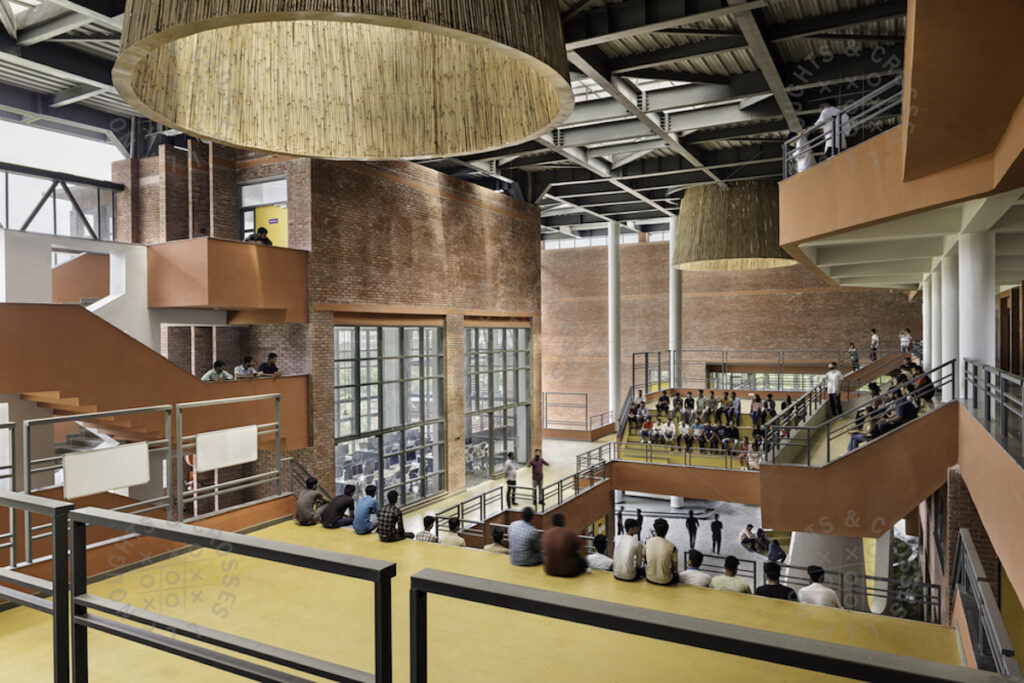
Focus on Application development, computer systems, and information technology
Covers topics like cloud services, ML, operating systems, and DS
Develops skills in coding languages, network security, and database management systems
Prepares students for careers in Application engineering, computer hardware, and Computing and engineering
Here are the primary features:
Comprehensive Curriculum
Core Subjects
Covers essential topics such as coding languages (C, C++, Java, Python),Information structures, algorithms, database management systems, system networks, operating systems, Application engineering, and web technologies.
Electives and Specializations
Allows students to tailor their learning with specialized courses in areas like cybersecurity, AI, cloud services, IoT, big Data examination, etc. The curriculum also includes learning about cutting edge technology.
Practical Orientation in Software Development
Laboratory Work
Hands-on sessions to apply theoretical knowledge and gain proficiency in Application development, network configuration, database management, etc.
Projects
Individual or group projects that encourage problem-solving skills and creativity in developing IT solutions.
Internships
Industry exposure through internships to gain real-world experience and understand professional work environments.
Industry Relevance
Updated Curriculum
Regularly updated to incorporate emerging technologies and industry trends to keep students abreast of the latest developments.
Guest Lectures and Workshops
Conducted by industry experts to provide insights into current practices and challenges in the IT sector.
Industry Collaborations
Partnerships with companies for internships, projects, and recruitment opportunities.
Career-Focused Approach
Career Guidance
Support for resume building, interview preparation, and career counseling.
Placement Assistance
Strong ties with corporate recruiters and placement cells to facilitate job placements for graduates. Graduates can pursue careers as data security officer, among other roles.
Entrepreneurship Opportunities
Encourages entrepreneurial skills with incubation centers and startup initiatives.
Soft Skills Development
Communication and Presentation Skills
Training in effective communication, presentation techniques, and teamwork.
Critical Thinking and Problem-Solving
Encourages analytical thinking and problem-solving abilities essential for IT professionals.
Ethical and Professional Conduct
Emphasizes ethical practices and professionalism in the IT industry.
Continuous Learning
Further Education
Preparation for higher studies like MTech, MBA, or certifications to specialize further in niche areas of IT.
Lifelong Learning
Cultivates a mindset of continuous learning to adapt to evolving technologies and career advancements.
Admission Process in B tech IT

The admission process for BTech in Information Technology (IT) involves several steps, from application to final enrollment. Here’s a detailed explanation of the typical admission process:
Application Form
Online Registration
Candidates need to visit the official website of the college or university offering B Tech IT and fill out the application form.
Personal Details
Details such as name, date of birth, contact information, educational qualifications, etc., need to be filled accurately.
Upload Documents
Scanned copies of documents like 10th and 12th mark sheets, identity proof, photograph, and signature may need to be uploaded as per the specifications provided.
Entrance Exam
Appear for Entrance Exam
Most B Tech IT programs require candidates to appear for national or state-level entrance exams like JEE Main, state CETs (Common Entrance Tests), BITSAT, VITEEE, etc.
Exam Pattern
Entrance exams typically include multiple-choice questions (MCQs) from subjects such as Physics, Chemistry, Mathematics, and sometimes Biology or Computer Science.
Exam Results and Merit List
Check Results
After the exam, candidates can check their results on the official website of the respective entrance exam conducting authority.
Merit List
Institutes release merit lists based on the candidate’s performance in the entrance exam, often considering 10+2 marks as well.
Counseling Process
Registration for Counseling
Candidates who qualify the entrance exam need to register for counseling on the respective counseling authority’s website.
Choice Filling
Candidates should select their preferred colleges and courses according to their rank and the availability of seats.
Seat Allotment
Seats are allotted based on the candidate’s rank, choices filled, and availability of seats in the preferred colleges.
Document Verification
Physical Reporting
Candidates need to physically report to the designated reporting center along with original documents for verification.
Documents Required
Documents typically include 10th and 12th mark sheets, entrance exam admit card and scorecard, category certificate (if applicable), domicile certificate, etc.
Fee Payment and Admission
Payment of Admission Fee
Once seats are allotted, candidates need to pay the admission fee within the specified timeframe to confirm their seat.
Seat Confirmation
Upon successful fee payment, the seat is confirmed, and candidates receive a provisional admission letter from the institute.
Enrollment and Commencement of Classes
Orientation Program
Institutes conduct an orientation program to familiarize students with the campus, faculty, rules, and facilities.
Commencement of Classes
Regular classes for the B Tech IT program begin as per the academic calendar of the institute.
B tech IT Fee Structure in India
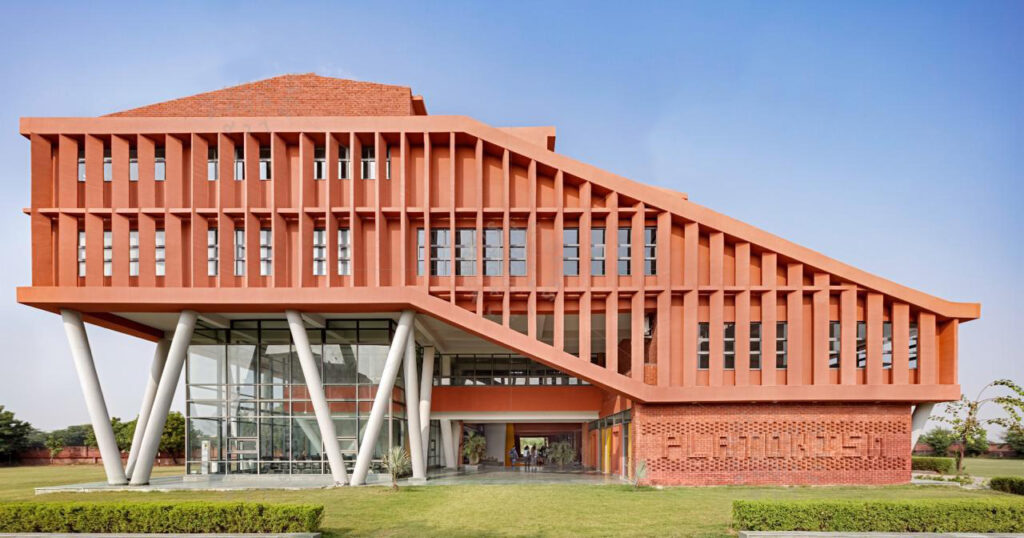
Sure, the fee structure for BTech in Information Technology (IT) in India varies widely across different institutes, with factors like institute type (government/private), location, and infrastructure influencing the fees.
Here’s a detailed overview:
Fee Structure in Government Institutes
Tuition Fees
Government institutes generally have lower tuition fees compared to private Institutes. Annual tuition fees can range from approximately ₹30,000 to ₹1.5 lakh.
Other Fees
Additional charges may include exam fees, library fees, and other miscellaneous fees, amounting to around ₹10,000 to ₹20,000 per year.
Fee Structure in Private Institutes
Tuition Fees
Private institutes tend to have higher tuition fees compared to govt colleges. Annual tuition fees can range from ₹1 lakh to ₹5 lakh or more, depending on the institute’s reputation and facilities.
Other Fees
Similar to government institutes, private Institutes may charge additional fees for exams, labs, libraries, and other facilities, totaling around ₹20,000 to ₹50,000 per year.
Additional Costs
Hostel and Accommodation
Hostel Fees
For students opting to stay in hostels, additional charges for accommodation, mess charges, and security deposits may apply. Hostel fees can range from ₹30,000 to ₹1 lakh per year, depending on the location and amenities provided.
Books and Study Material
Books
Students may need to budget for textbooks, reference books, and study materials, which can vary from ₹5,000 to ₹15,000 per year, depending on the course requirements and personal study preferences.
Miscellaneous Expenses
Transportation
Costs for commuting to and from college vary based on the student’s location and mode of transport.
Personal Expenses
Living expenses such as food, clothing, and personal amenities also need to be factored into the budget.
Scholarship and Financial Aid
Scholarships
Many institutes offer merit-based scholarships, government scholarships, and fee waivers based on academic performance or financial need.
Loan Facilities
Banks and financial institutions provide education loans at preferential rates to cover tuition fees and other related expenses.
Syllabus of Btech Information Technology Course
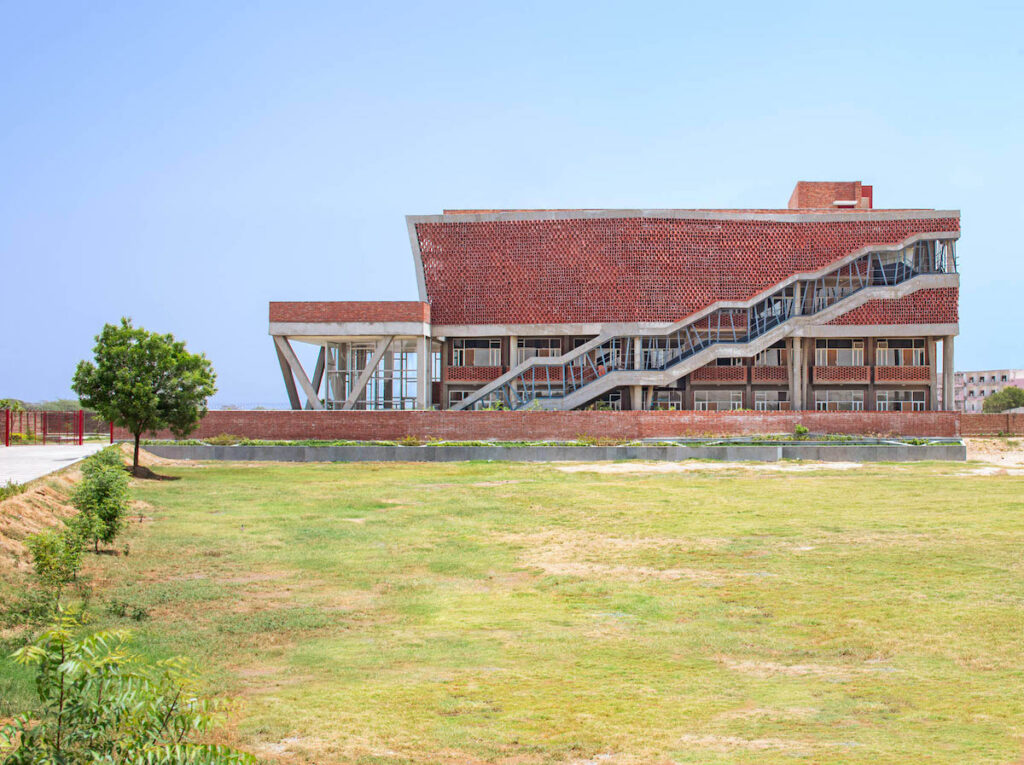
The syllabus for B Tech in Information Technology (IT) typically covers a comprehensive range of subjects designed to provide students with both theoretical knowledge and practical skills in the field.
Here’s an overview of the syllabus:
Semester-wise Breakdown of B Tech IT Syllabus
First Year (Semester 1 & 2)
Semester 1
Mathematics I (Calculus and Differential Equations)
Physics
Engineering Mechanics
Introduction to Programming (C Programming)
Communication Skills
Semester 2
Mathematics II (Linear Algebra and Probability)
Chemistry
Engineering Graphics
Information structures (Using C)
Environmental Studies
Second Year (Semester 3 & 4)
Semester 3
Mathematics III (Discrete Mathematics)
Object-Oriented Programming (Java)
Digital Electronics
Computer Organization and Architecture
Database Management Systems
Semester 4
Mathematics IV (Numerical Methods and Optimization)
Operating Systems
Web Technologies (HTML, CSS, JavaScript)
Application Engineering
Technical Communication
Third Year (Semester 5 & 6)
Semester 5
Artificial Intelligence
Computer Networks
Algorithms Design and Analysis
Internet of Things (IoT) or Cloud services (Elective I)
Elective II
Semester 6
ML
Information Security
Mobile Computing
Elective III
Project Phase I
Fourth Year (Semester 7 & 8)
Semester 7
Big Data examination
Blockchain Technology
Ethics in Information Technology
Elective IV
Project Phase II
Semester 8
Seminar on Current Trends in IT
Industrial Training or Internship
Comprehensive Viva-Voce
Project Presentation and Evaluation
Project Work and Seminars
Final Year Project based on real-world IT problems
Seminars and presentations on emerging trends and technologies
Practical Components
Programming Labs
Hands-on experience with coding languages and data structures is an essential component of technical education.
Development of small-scale software applications
Networking and Security Labs
Configuring and troubleshooting computer networks
Implementing security protocols and mechanisms
Database Management Labs
Designing and querying databases
Implementing database applications
Industry-Oriented Skills
Here’s a list of Industry-oriented skills needed to be learned by engineering Aspirants:
Soft Skills and Professional Ethics
Communication skills
Teamwork and leadership
Ethical considerations in IT practices
Internship and Industrial Training
Practical exposure through internships in IT companies
Industrial training to understand real-world IT environments and challenges
Emerging Technologies in Cloud Computing
Blockchain Technology
Basics of blockchain architecture and applications
Cybersecurity
Threats and vulnerabilities
Security measures and best practices
Top Government Colleges for B tech Information Technology
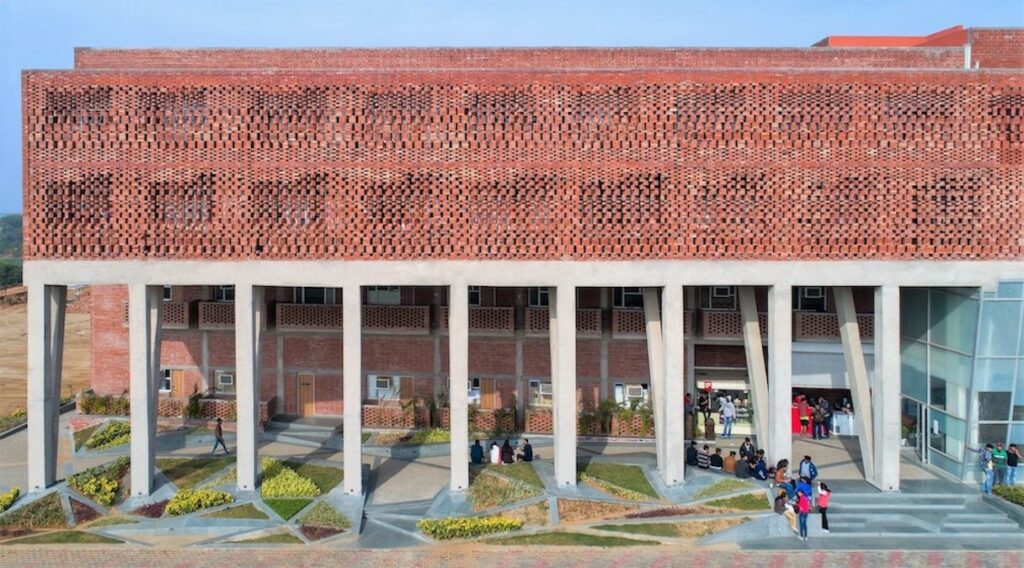
Here are some of the prominent government colleges known for their B Tech IT programs:
Indian Institutes of Technology (IITs)
Programs
IITs offer B Tech programs in various specializations, including Computer Science and Engineering (CSE), which often includes IT-related courses.
Admission
Admission to IITs is through the Joint Entrance Examination (JEE) Advanced after clearing JEE Main.
Features
Known for rigorous academics, world-class faculty, research opportunities, and strong industry connections.
National Institutes of Technology (NITs)
Programs
NITs offer B Tech in IT and related branches, focusing on core IT subjects along with elective courses.
Admission
Through JEE Main exam scores followed by counseling conducted by JoSAA (Joint Seat Allocation Authority).
Features
Excellent infrastructure, experienced faculty, industry collaborations, and good placement opportunities.
Indian Institutes of Information Technology (IIITs)
Programs
IIITs specialize in IT-related disciplines, offering B Tech programs with a strong emphasis on IT and computer science.
Admission
Through JEE Main or specific entrance exams conducted by IIITs.
Features
State-of-the-art facilities, specialized curriculum in IT domains, research-oriented programs, and industry partnerships.
St. Andrews Institute of Technology and Management
Programs
St. Andrews Institute of Technology and Management offer B Tech programs in various specializations, including Computer Science and Engineering (CSE), which often includes IT-related courses.
Admission
Admission is through the Joint Entrance Examination (JEE) Advanced after clearing JEE Main.
Features
State-of-the-art facilities, specialized curriculum in IT domains, research-oriented programs, and industry partnerships.
Prospective students should research specific colleges of interest to understand their unique offerings, faculty profiles, industry partnerships, and placement opportunities before making an informed decision about their educational path.
Top Private Colleges for B tech IT in India
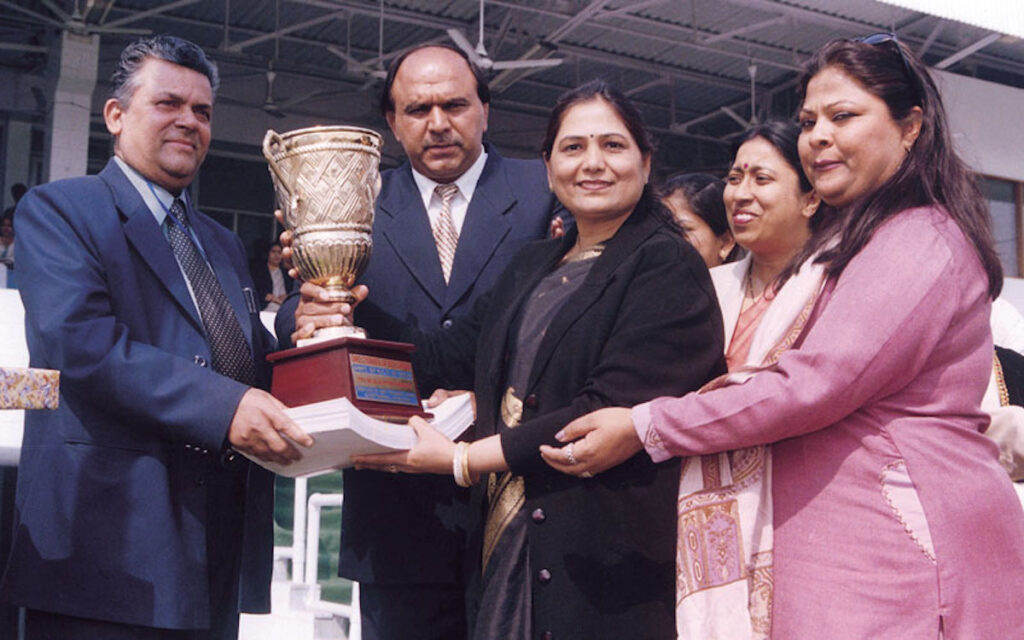
Here’s a list of Top Private Institutes for B tech IT in India:
Birla Institute of Technology and Science (BITS), Pilani
Programs
Offers B Tech in Information Technology, Computer Science, and other related disciplines.
Admission
Through BITSAT (BITS Admission Test).
Features
Excellent campus facilities, renowned faculty, industry collaborations, and strong alumni network.
St. Andrews Institute of Technology and Management, Delhi
Programs
B Tech in Information Technology and related branches.
Admission
On the Basis of merit and Scholarships.
Features
State-of-the-art infrastructure, international collaborations, industry-aligned curriculum, and high placement rates.
Future scope of B tech Information Technology Graduates

The field of B Tech in Information Technology (IT) offers diverse career options and promising job prospects across various industries.
Here’s an overview of career options and job prospects for B Tech IT graduates:
Career Opportunities After B tech IT
Software Engineer /Developer
Design, develop, and test software applications and systems.
Specialize in areas like web development, mobile app development, or enterprise software solutions. Graduates can also work as software engineers, focusing on both computer software and hardware design, development, and management.
System Analyst
Analyze and optimize IT systems and infrastructure to enhance efficiency and performance.
Bridge the gap between business requirements and technology solutions.
Computer Science Engineer
As a computer science engineer, graduates can explore various job profiles such as software developer, system analyst, and network engineer. Pursuing further education in computer science engineering can lead to better career prospects and higher salary packages.
Computer Hardware
Design, develop, and test computer hardware components
Computer Science and Engineering
Work on computer systems, networks, and databases
Tech Information Technology Colleges
Pursue a career in teaching and research
Network Engineer/Administrator
Design, implement, and manage computer networks and communication systems.
Ensure network security, connectivity, and performance.
Database Administrator (DBA)
Manage and maintain databases to ensure data integrity, security, and availability.
Optimize database performance and troubleshoot issues.
IT Consultant
Provide advisory services to organizations on IT strategies, systems integration, and technology implementations.
Help businesses align IT solutions with their strategic goals.
Cybersecurity Analyst/Engineer
Protect computer systems and networks from cyber threats.
Implement security measures, monitor for breaches, and respond to incidents.
Cloud Architect/Engineer
Design and deploy cloud infrastructure and services.
Ensure scalability, security, and cost-efficiency of cloud solutions.
Data Scientist/Analyst
Analyze large datasets to extract meaningful insights and support decision-making.
Use statistical techniques, ML algorithms, and data visualization tools.
UI/UX Designer
Design intuitive user interfaces and engaging user experiences for software applications and websites.
Focus on usability, accessibility, and visual appeal.
Project Manager
Lead IT projects from planning to execution, ensuring timely delivery and adherence to budget and quality standards.
Coordinate teams, manage resources, and communicate with stakeholders.
Web Developer
Create and maintain websites and web applications.
Develop front-end and back-end components, ensuring functionality, performance, and user experience.
Skills include HTML, CSS, JavaScript, and various web development frameworks.
Job Prospects of B tech Information Technology Graduates
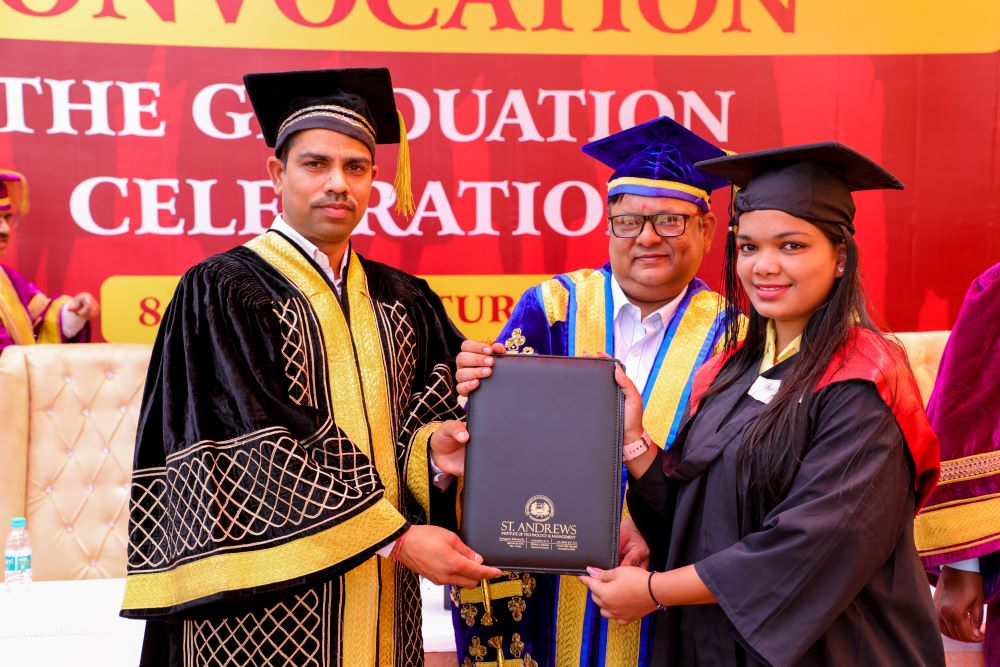
IT Industry
Opportunities in IT services, Application development companies, IT consulting firms, and tech startups.
Finance and Banking
Demand for IT professionals in financial institutions for Application development, cybersecurity, and data analysis.
Healthcare
IT roles in healthcare IT systems, electronic medical records (EMRs), telemedicine, and health informatics.
E-commerce
Positions in e-commerce platforms for web development, digital marketing, and data analytics.
Government
IT roles in government agencies for digital transformation, e-governance initiatives, and cybersecurity.
Skills Required
Technical Skills
Coding languages (Java, Python, C++), database management, web development frameworks, networking, and cloud services.
Soft Skills
Communication, problem-solving, teamwork, project management, and adaptability to new technologies.
Future Outlook
Growing Demand
Continuous advancements in technology drive the demand for skilled IT professionals across industries.
Emerging Technologies
Opportunities in artificial intelligence, ML, blockchain, and Internet of Things (IoT) are expanding.
Global Opportunities
IT skills are in demand globally, offering opportunities for international careers and collaborations.
B Tech IT graduates have a versatile skill set that prepares them for dynamic roles in a rapidly evolving digital landscape, making it a promising career choice for those passionate about technology and innovation.
Skills Required for B tech IT
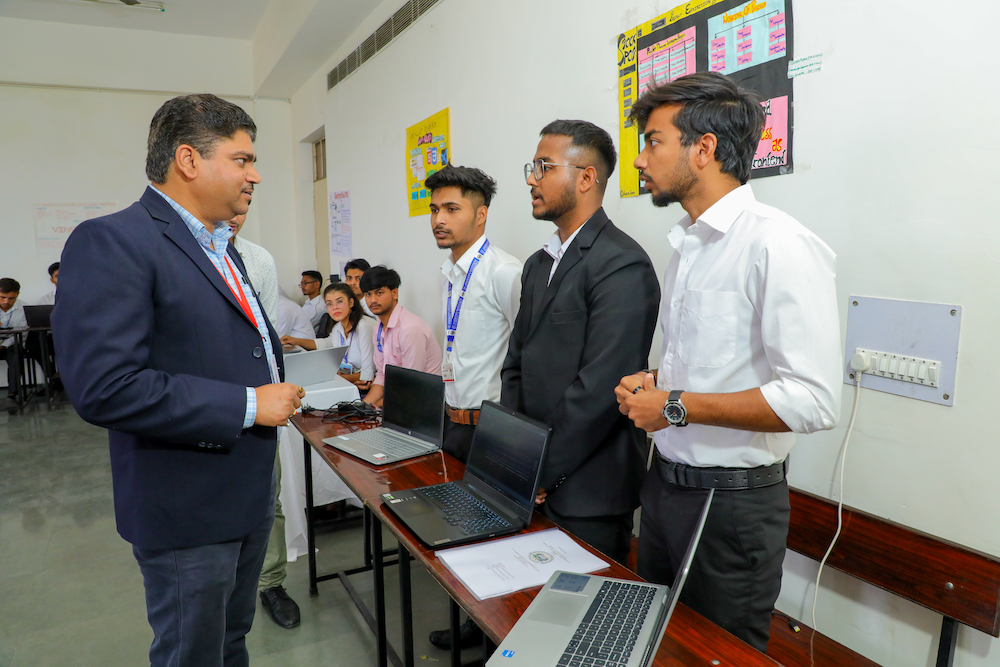
The field of BTech in Information Technology (IT) requires a diverse set of technical and soft skills to excel in various roles.
Here are the key skills and competencies required for B Tech IT graduates:
Technical Skills in Programming Languages
Coding Languages
Proficiency in languages like Java, Python, C/C++, JavaScript, or others depending on specialization.
Ability to write efficient and maintainable code for Application development.
Database Management
Knowledge of database systems such as SQL, MySQL, Oracle, MongoDB, etc.
Designing, querying, and optimizing databases for performance and scalability.
Web Development
Understanding of front-end technologies like HTML, CSS, JavaScript, and frameworks such as React, Angular, or Vue.js.
Backend development skills using frameworks like Node.js, Django, Flask, or others.
Networking and Security
Understanding of network protocols (TCP/IP, HTTP, FTP), routing, LAN/WAN configurations.
Knowledge of cybersecurity principles, including cryptography, firewalls, VPNs, and secure coding practices.
Cloud Computing
Familiarity with cloud platforms such as AWS, Azure, Google Cloud, and services like SaaS, PaaS, IaaS.
Skills in deploying, managing, and optimizing cloud-based applications and infrastructure.
Software Engineering Practices
Knowledge of Application development methodologies (Agile, Scrum, DevOps) and tools (Git, Jenkins).
Experience with software lifecycle processes, including requirements gathering, design, testing, and maintenance.
Data Analysis and Machine Learning
Ability to work with large datasets, perform data cleaning, analysis, and visualization using tools like Python libraries (NumPy, Pandas, Matplotlib).
Basic understanding of machine learning algorithms and techniques for predictive modeling.
Soft Skills
Problem-Solving
Analytical mindset to identify issues, evaluate options, and implement effective solutions.
Communication
Clear and effective verbal and written communication skills to collaborate with team members, stakeholders, and clients.
Teamwork
Ability to work collaboratively in multidisciplinary teams, share knowledge, and contribute to project success.
Adaptability
Flexibility to learn new technologies and adapt to changing project requirements and industry trends.
Time Management
Organizational skills to prioritize tasks, meet deadlines, and manage multiple projects simultaneously.
Leadership
Skills to lead teams, delegate tasks, and take initiative in project planning and execution.
Additional Competencies
Critical Thinking
Ability to evaluate information objectively, make reasoned judgments, and solve complex problems.
Ethical Awareness
Understanding of ethical considerations in IT, including privacy, security, and legal compliance.
Continuous Learning
Commitment to staying updated with industry trends, new technologies, and professional development opportunities.
Importance
These skills and competencies are crucial for B Tech IT graduates to succeed in various domains such as Application development, cybersecurity, data analytics, cloud services, and more. Employers seek candidates who not only possess technical proficiency but also demonstrate strong communication, teamwork, and problem-solving abilities essential for contributing effectively to organizational success in the digital age. Why Pursue B tech IT?
Benefits of the Course
High demand for IT professionals in the industry
Opportunities for higher education and research
Good salary packages and career growth prospects
Opportunities to work on cutting-edge technologies like AI, ML, and Cloud services
Top Companies Hiring Btech Information Technology Graduates
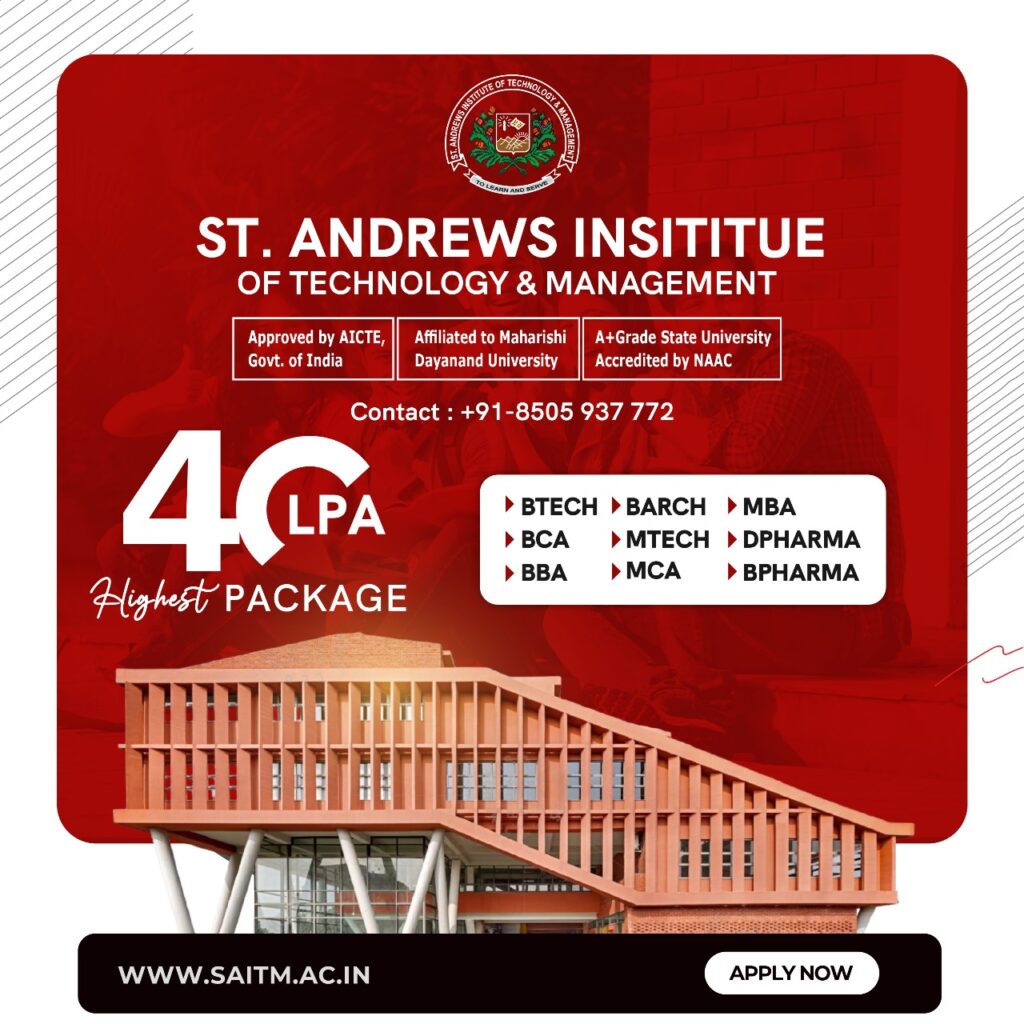
Tech Giants
Known for its innovative technology and projects, Google hires IT graduates for roles in Application development, data analysis, and cybersecurity.
Offers positions in Application engineering, cloud services, AI, and IT consulting.
Apple
Focuses on hardware-software integration, app development, and system security roles.
Consulting Firms
Accenture
Provides opportunities in IT consulting, system integration, and technology services.
Hires for roles in IT advisory, risk management, and technology consulting.
PwC (PricewaterhouseCoopers)
Offers positions in IT strategy, cybersecurity, and digital transformation consulting.
IT Services Companies
Infosys
Known for its extensive training programs, Infosys hires for Application development, system maintenance, and IT consulting.
TCS (Tata Consultancy Services)
Provides roles in IT services, consulting, and business solutions.
Wipro
Hires IT graduates for cloud services, cybersecurity, and digital transformation projects.
E-commerce Companies
Amazon
Offers positions in web development, cloud services (AWS), data analysis, and cybersecurity.
Flipkart
Hires for roles in software engineering, DS, and IT infrastructure management.
Telecommunications
Cisco
Focuses on networking, cybersecurity, and IT infrastructure roles.
AT&T
Offers positions in network management, Application development, and IT operations.
Financial Services
JP Morgan Chase
Hires IT graduates for roles in fintech, cybersecurity, and IT infrastructure.
Goldman Sachs
Offers positions in software engineering, data analysis, and cybersecurity.
Healthcare IT
Cerner Corporation
Focuses on healthcare IT solutions, software development, and system integration.
Philips Healthcare: Hires for roles in IT system management, data analysis, and software development.
Automotive
Tesla
Offers positions in software development, AI, and IT system management.
Ford
Hires for roles in IT infrastructure, data analysis, and cybersecurity.
Startups and Emerging Companies
Zomato
Offers positions in software development, IT infrastructure, and data analysis.
Paytm
Hires IT graduates for fintech development, cybersecurity, and IT operations.
FAQs
What is the scope of B tech IT in India?
The scope of B tech IT is very high, with a growing demand for IT professionals in the industry.
What are the job prospects after B tech IT?
Job prospects are good, with opportunities in Application engineering, computer hardware, and computer science and engineering.
What is BTech in information technology?
BTech in Information Technology (IT) is an undergraduate engineering program that focuses on the design, development, implementation, and management of computer-based information systems. It covers a wide range of topics including software development, networking, database management, cybersecurity, and web technologies, preparing students for careers in IT and related fields.
What is the scope of BTech in IT?
The scope of BTech in Information Technology (IT) is extensive, offering opportunities in software development, cybersecurity, database management, network administration, and more. Graduates can pursue careers as software engineers, system analysts, IT consultants, web developers, or data analysts across diverse industries globally, due to increasing digitalization and technological advancement.
Who is eligible for B Tech it?
Eligibility criteria for BTech in Information Technology (IT) typically include passing the 10+2 examination with Physics, Chemistry, and Mathematics as core subjects. Some institutes may also require a minimum aggregate score in these subjects. Additionally, candidates must clear relevant entrance exams such as JEE Main or state-level engineering entrance exams for admission.
Is BTech information technology good for future?
Yes, BTech in Information Technology (IT) is highly promising for the future. It equips students with essential skills in software development, cybersecurity, cloud computing, and data analytics—all crucial in the digital age. With increasing demand for IT professionals across industries, it offers excellent career prospects and growth opportunities.
Are there any specialization options available in B Tech IT?
Yes, students can specialize in areas like Artificial Intelligence, Data Science, Cybersecurity, Cloud Computing, and Internet of Things (IoT) through elective courses in the later semesters.
What kind of internships and projects can IT students expect?
Students can undertake internships in software development, IT consulting, network administration, and cybersecurity. Projects often involve real-world problem-solving, coding, and system design.
How important is programming knowledge in B Tech IT?
Programming is a fundamental skill in IT. Students are expected to be proficient in languages like C, C++, Java, Python, and JavaScript, as it is crucial for software development and problem-solving.
What are the prospects for higher studies after BTech in IT?
Graduates can pursue higher studies like MTech, MS, MBA, or specialized courses in fields like Data Science, Cybersecurity, and Artificial Intelligence to enhance their career prospects.
What are the top private Universities for BTech in IT in India?
Top private Universities include BITS Pilani, VIT Vellore and Thapar Institute of Engineering and Technology.
What skills are required for a successful career in IT?
Key skills include proficiency in coding languages, problem-solving abilities, knowledge of networking and databases, cybersecurity awareness, analytical thinking, and effective communication skills.

